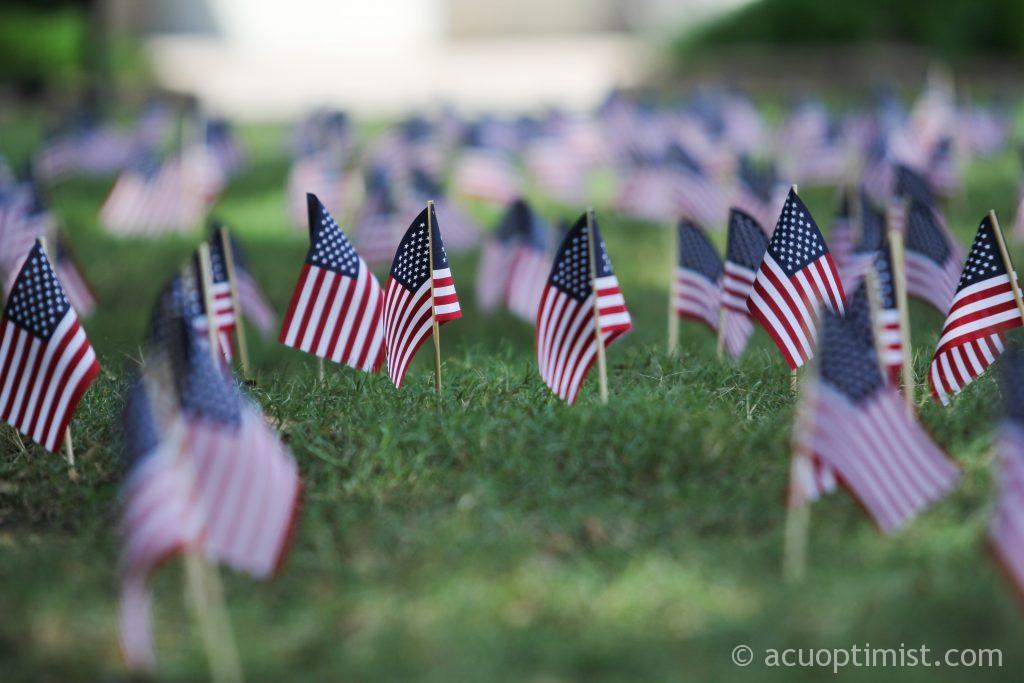When he reached Hardin Simmons for an early-morning meeting, Dr. Royce Money, then ACU president, sat in his car, digesting the news. At 8:46 a.m., American Airlines Flight 11 struck floors 93-96 of the North Tower of the World Trade Center.
“I don’t think we ever got out of the car,” Money said. “We decided the best thing would be for me to be on campus.”
Gradually, news spread, and Money was made aware of the second plane crash at 9:03 a.m. United Airlines Flight 175 crashed into floors 75-85 of the South Tower of the World Trade Center. At 9:37, American Airlines Flight 77 crashed into the western facade of the Pentagon.
Money prepared to address to the student body during chapel. Most students had not yet heard of the events.
“I’ll never forget that day in chapel,” Money said. “You could hear gasps and oxygen leaving the room, because a lot of it you could hardly believe it.”
Afterward, counseling was made available, and the daily routine was cancelled to fill the fearful silence with prayer.
“It was somber. Quieter. The number one topic of conversation,” Money said.
Col. Jim Holmans, Dr. Money’s executive assistant at the time, worked at the Pentagon from 1995 until 1997 in one of the sections the plane crashed into four years later.
Throughout the following days, Money did a lot of walking around campus. From office to office and building to building. He said if he learned about leadership, it was that visible presence is important, especially when the campus was still trying to understand the implications of what was going on.
On the second or third day, Money said they began to get specific prayer requests. In an attempt to continue awareness, the chapel schedule was adjusted to allow speakers to deal with the types of issues that came up, and how individuals and communities could learn how to handle the emotions.
In the beginning of October of 2001, the international office received an envelope with white powder in it. Because the nation was on edge, Money said the person opening the letter believed it to be anthrax. Out of fear and urgency, they called 911.
“We had to wait more than 24 hours to tell if it was anthrax or not,” Money said. “The whole campus was suspended with all of these national reporters; it was pretty scary. Had that not come on the heels of 9/11, that might not have been quite as sensational.”
Though Money said he had received crisis training prior to the attacks that did benefit him, there is never a way to anticipate tragedy nor know how to handle it.
“Looking back at it, the campus handled it in a very mature and balanced way,” Money said. “We all became more sensitive and more aware of the fragile nature of the world. All was forever changed.”
One year later, Money addressed the student body again in remembrance of the attacks. In chapel on Sept. 11, 2001, Money said:
“64 flags are posted behind me, representing the United States and 63 other nations that were home to the victims killed on September 11th. The terrorist attacks in America touched the world, and people from around the globe drew closer together. We drew comfort from one another, and millions drew strength from God our Father.”
As we look back, we look up. We lean even more on God our Father, and we are comforted by His son, Jesus Christ. September 11, 2001, is a day we will not forget. But we are able to endure such events because of our faith in God and His sovereignty. Our God reigns.”
As president of the university, Money said his experience was different from most.
“I knew at the back of my mind that there was a pastoral dimension to my responsibilities,” Money said. “People needed consoling, not a rational explanation. They needed to be reassured of the positive outcomes in life.”
This year, for the first time in campus history, 9/11 was tangibly honored.
On Tuesday, Young Americas Foundation posted 2,977 flags covering the lawn outside of Moody Coliseum, one for each victim of the 9/11 attacks.
“It is important that each victim is remembered,” said Davis Dilling, a junior political science major from Vero Beach, Florida, and president of ACU’s YAF chapter. “Each human life is important to God and should be to us.”
Dilling said the 9/11: Never Forget Project is a project that the YAF national headquarters encourages the chapters to do, but is voluntary.
“It was a very scary time; it will be with us from here on,” Money said.

